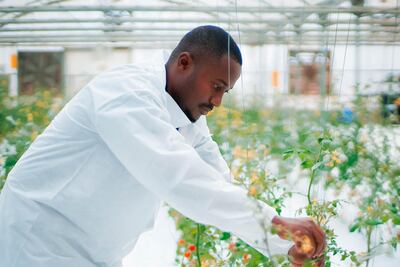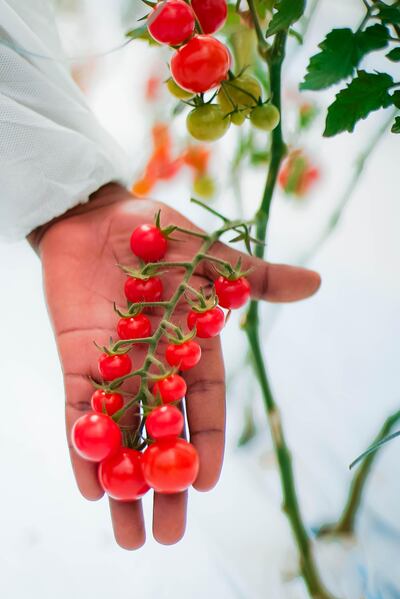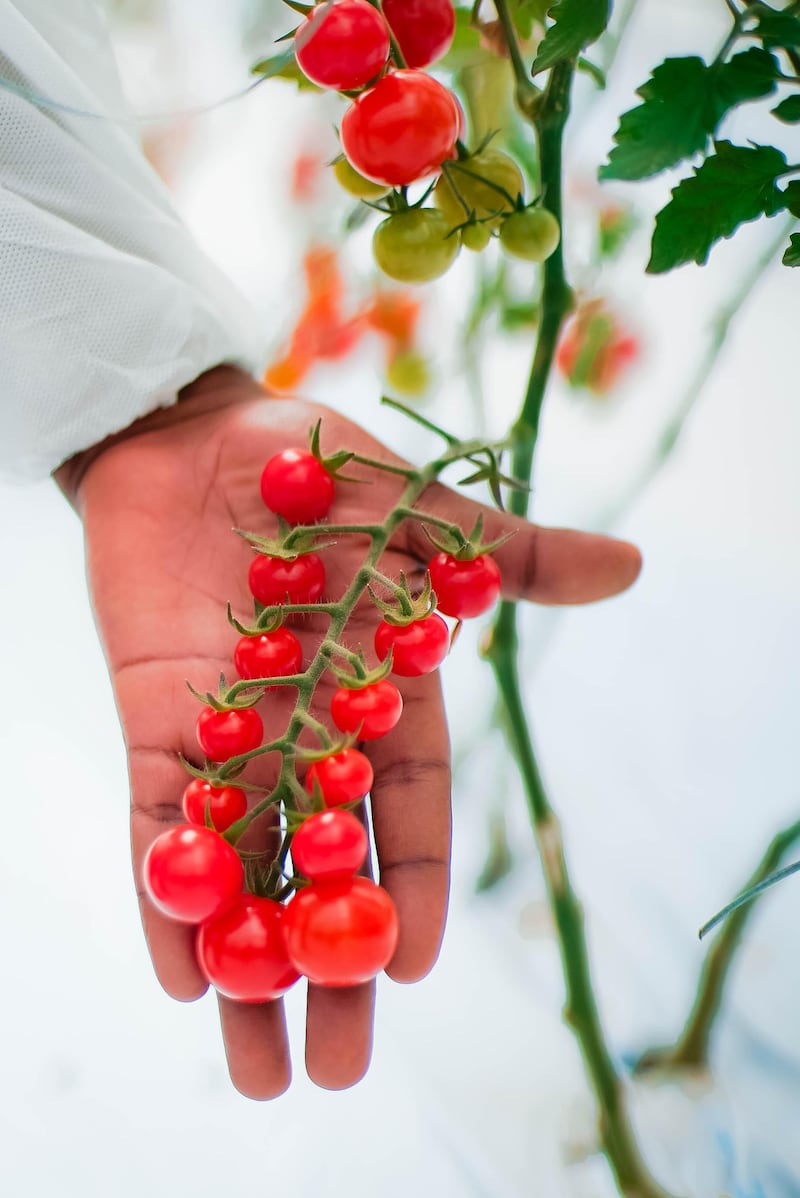The Japanese have a phrase that, when roughly translated, states that a calamity or disaster can sometimes have a fortuitous outcome, depending on how you look at things.
The pioneering research work of professor Yuchi Mori, as it relates to farming, neatly illustrates this point. Following the 2011 earthquake and tsunami in Japan, and the resulting Fukushima Daiichi nuclear disaster, the professor realised that medical research he had undertaken on membranes and hydrogels had an additional application for agriculture - giving new life and hope to those whose livelihoods had been decimated when their farmland had been contaminated beyond use.
Today, more than 160 Japanese farms are producing high-yield, high-profit crops, including tomato, cucumber, melon, strawberry, capsicum, lettuce and herbs, using film farm technology. This method of growing utilises a form of hydrogel, which does away with soil and dramatically reduces the amount of water required for cultivating plants.

In January, Mebifarm in Al Ain, part of Mebiol Europe Limited, became the first farm in the UAE to harvest crops of its Tomatolicious cherry tomatoes using film farm technology. Mebiol is currently working on a variety of distribution and consultancy deals to further applications for the technology across the region and in Europe. Since, worldwide, fresh water is becoming an increasingly scarce resource and soil quality is deteriorating, the benefits of this system are obvious in the general sense - but for growing food in the desert, where both water and local soil quality are already challenging, it’s a complete game changer.
In a recent interview with BBC Radio 4, professor Mori explained that the membrane “looks transparent and has numerous nano-sized pores that block germs and viruses, and therefore block diseases, even without chemicals”.
The film works by soaking up water and nutrients through nano-sized pores. But its surface remains completely dry to the touch, which means plants have to work extra hard to suck or draw up the nutrients they require. In order to do so, the surface area of the root system is increased, as compared to usual soil-based or hydroponically grown plants. The polymer film is laid on a thin layer of woven fabric onto which water is dripped via a tube, and moisture is taken up by the film to sustain the plants grown on its surface.
The roots form a lattice network over the surface of the film, but don’t penetrate the material – instead the roots grip the surface like alpine plants. Invert the growing medium and the plants remain in place. The increased surface area of the roots naturally increases the sugar content of the plants, and it’s this process of osmosis that draws in the nutrition that the plant requires. Thus, film farmed cherry tomatoes are sweeter, naturally, than those of the same type grown in soil or by other hydroponic methods.

The UAE is arguably one of the most inhospitable places in the world for farming, and so a system that can convert desert into farmland clearly has the potential to make a significant impact on food security for the country, where around 90 per cent of food has to be imported. Added to that, food grown locally can arrive in local supermarkets and home delivery boxes just a day after harvest, thus retaining more of its flavour and nutritional value.
The 1.25-acre Mebifarm now averages a little over a tonne of produce weekly. Currently, cherry tomatoes are its only commercially distributed crop, although 20 per cent of the farm’s area is set aside for research and experimentation. “We are looking at how we can stretch this technology; it’s still very young and so we want to see what else it can do,” says George Makau, the farm’s manager. They are working on testing lettuces and herbs, and are also keen to experiment with strawberries, to capitalise on the additional sweetness that is evident in produce grown in this way.
________________
Read more:
Syrian garden wows at Chelsea Flower Show
Plant the seed for self-sustenance to lead a healthier life
Soil free and sustainable: inside The Farmhouse in Ras Al Khaimah
________________
Interestingly, UAE produce is proving to be even sweeter-tasting than crops grown in Japan, a consequence of the broader spectrum of light that’s available in the desert. Makau says the term film farming should differentiate their process from hydroponics, although this is a very broad definition that generally covers all plants grown without soil. Nonetheless, the processes are quite different technically; with traditional hydroponics, the roots are hydrated directly with a solution applied to the growing medium, but film farming is an entirely new genre that puts “stress on the plants, as the roots have very little water, so the plants have to work hard to draw water from the film. Plants adjust to the film, plants are very clever,” observes Makau.
Much of the water utilised in conventional agriculture is wasted as it is not taken up by the plants, and then either evaporates or drains away into the soil. Rania Halwani, the farm's general manager, explains that as the water necessary for growth is reduced in film farming, further efficiencies emerge. The film also reduces the amount of fertiliser needed, without compromising on either nutritional value or taste (as laboratory tests have shown).
As mentioned, the film is made of nanopores, which let in water but will block fungi and bacteria, limiting the need for any organic pesticide. As Halwani observes, “we are seven months in from first crops, and it hasn’t been necessary to spray yet”. Being grown in large greenhouses also limits the crop’s exposure to outside pests.
A film can be used for a whole harvest and, with some plants, this lasts for a year, although for some crops, there are farmers who prefer to replace it every six months. Alternatively, on a smaller scale, plants can be very carefully removed to recycle the film to give it an even longer life – as long as it is thoroughly cleaned before being reused.
The farm has already attained accreditation from Global GAP, which is a worldwide standard for good agricultural practices, and is seeking local organic certification. However, the UAE does not currently award organic credentials for crops not grown in soil.
“These tomatoes have changed the way I look at agriculture, I couldn’t imagine how you could grow tomatoes in this way,” says Halwani, who used film technology to cultivate tomato plants near a window at home. “I would be going away for two or three weeks, so I’d add water, and on my return, they’d still be growing”.
Film farm tomatoes are currently distributed to UAE supermarkets and home delivery boxes by Kibsons under the farm-to-fork Tomatolicious label






